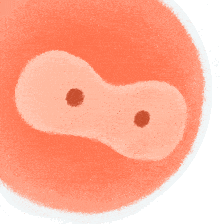Radiotherapy began.
To record and track the side effects, I prepared a spreadsheet where the columns listed the anticipated side effects and a row was added each day. Such a personal diary would come handy for looking up when a side effect first emerged, how severe it became, my mitigations and when it subsided. With so many concurrent side effects, it would be difficult to track without any written records.
The first week was so uneventful.
I was full of energy. Driving myself to the hospital and back —— a 90-minute round-trip, didn’t tire me out. Neither did finding a tight parking space in the busy multi-storey hospital car park. As we were at the tail end of summer, I attended the appointments in my autumnal trench coats. The nurse greeting patients and taking their temperatures by the reception asked for my staff pass —— she mistook me as a new colleague! The radiographer also noticed my colour-coordinated outfit. I really didn’t look the part as a patient at all.
There were no changes to my daily living. Mucositis (inflammation of the oral mucosa)? Oral ulcers? Sore throat? Taste change? Dry mouth?
None of the side effects I was watching out for materialised. Yet, an “off-menu” one did creep up out of the blue! These things really catch you off guard sometimes. None of the patients’ leaflets mentioned it as I don’t think many people would have noticed it.
It’s to do with my hearing. No, it’s not about the volume or tinnitus, but the pitch.
I was born with absolute pitch —— the ability to recognise (name) and sing a certain note accurately without the aid of an external reference (e.g. a musical instrument or tuning fork). Radiation messed it up!
How did I find out? Well, it was the fourth day of radiotherapy. I was listening to some music while driving home. The first song was Hins Cheung’s 《A Century On》, a piece in C major. The first few bars of the intro sounded really weird; the pitch was just a tad lower than I expected.
The discrepancy was less than a semitone, but significant enough to get on my nerves. The analogy would be for someone who has a very sharp eye for colour to suddenly discover one day that the “STOP” traffic sign looks “wrong” because it is not in the expected shade of bright red but somewhat washed out.
As the verse started, my unease grew.
Hey, Hins, did you catch a cold? Why this voice? It lacks the usual brilliance......
Cold. What cold? Of course it wasn’t. I wasn’t at a concert. It's just the YouTube Music app. Could it be a bug in the latest app update? Unlikely. Wasn’t it all fine on my way to the hospital earlier in the day?
It dawned on me —— could this be down to radiation damage to my ears?
I rushed home to verify on my digital piano, which shouldn’t have any tuning issues.
Alas! The piano sounded weird in the same way too! The digital one! Oh no!
I’ve only had one other similar experience before in my teenage years. That episode struck while I was taking some medicine for a cold or flu. I vividly remember how all sounds confusingly shifted down by a semitone. Fortunately normality was restored once the medication stopped, phew! Now it’s revisiting due to radiotherapy.
What should I do then? It’s OK to stop streaming music for a while, I could live with that. But the piano?
The piano came with a factory default of the standard tuning (A4 = 440 Hz), which is exactly what my brain is used to and comfortable with. That’s why I had hardly paid attention to the built-in tuning or transposition functions —— until now! I raised the pitch of A4 in tiny increments, until it hit 450 Hz —— ah, sanity restored! What a life-saver! It’s akin to supplementing the colour-sensitive person’s vision with a filter to “restore” the bright redness in the road sign.
It goes without saying that there’s no discussion about disruption of absolute pitch by radiotherapy. After all, its impact on physical health is nil. There must be others out there with a similar experience though?
The piano has always taken centre stage in my life. I once said I could live happily without a television at home but I would always find space for a piano. So...... this pitch shift: is it irreversible, or just temporary? Post-treatment, would it bounce back to what it used to be, just like the soft palate? If irreversible, then what? Could I live with it? Would I get used to it eventually? Well, nobody knew. I just had to wait and see.
Looking back, it’s sobering to see how much energy I could afford to expend on playing the piano, tuning it, and lamenting on the trivial disruption in pitch perception. I just hadn’t got bigger fish to fry yet, right?
As for the tuned piano, its impact was short-lived. Within ten days, I started struggling to look after myself at home. Even the piano couldn’t deliver me from this ordeal......
